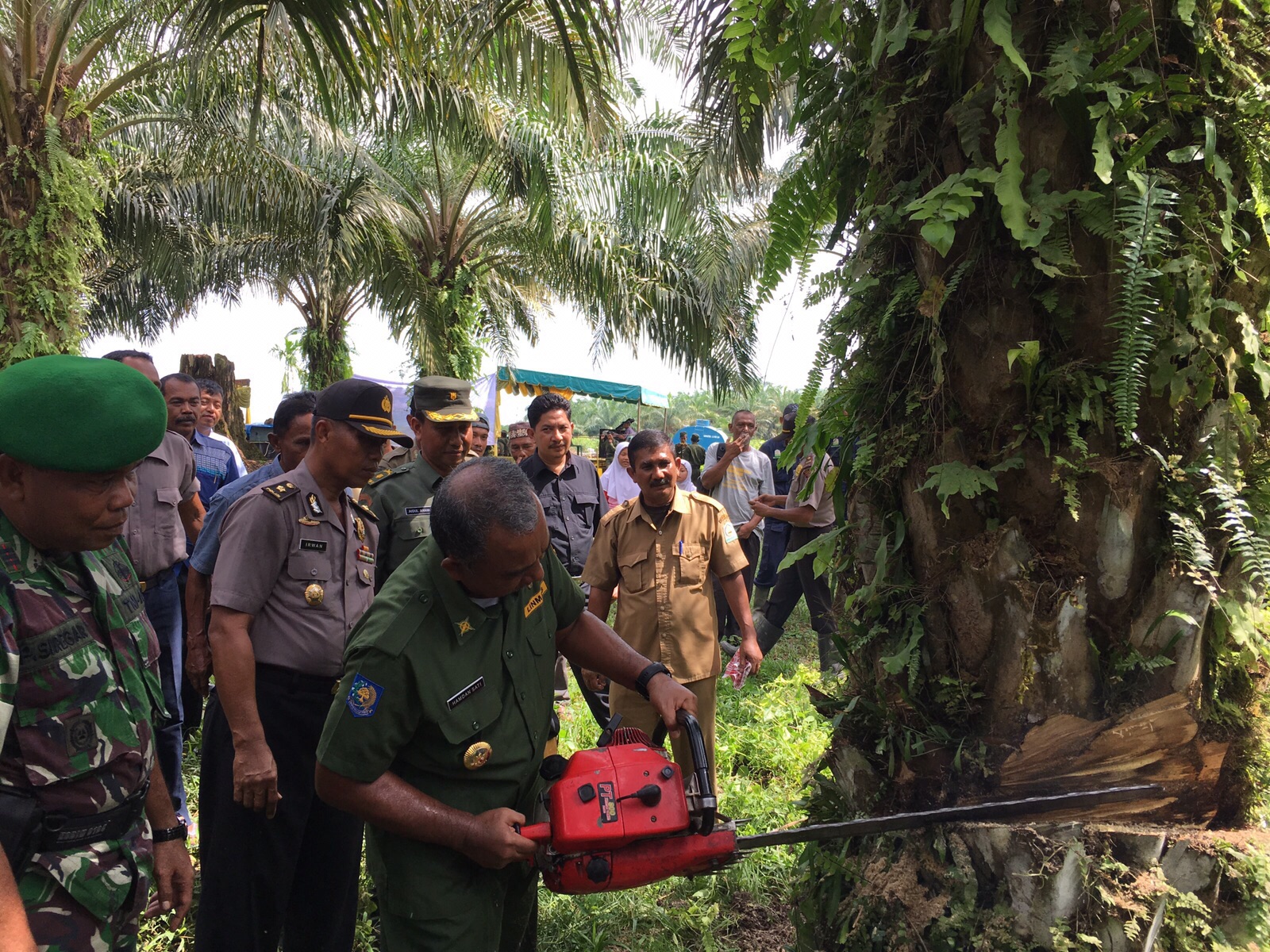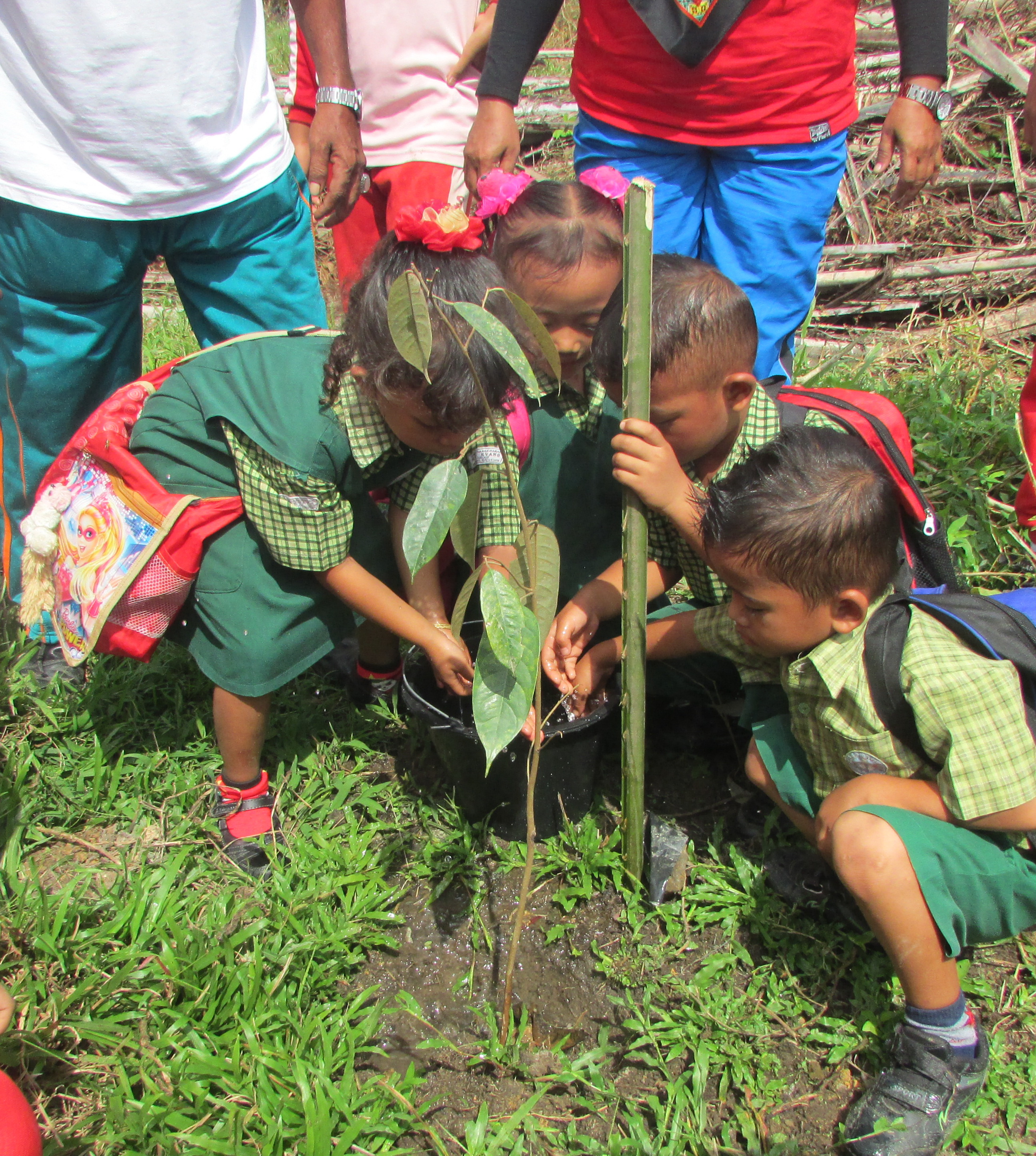Last week, local government officials from the district of Aceh Tamiang in Aceh, Indonesia, began a project to restore 1,070 hectares of forest within the Leuser Ecosystem that had been destroyed and illegally planted with palm oil trees.
The project began with a ceremony where the Bupati (Mayor) of Aceh Tamiang, Hamdan Sati, used a chainsaw to cut down an illegally planted palm oil tree, literally taking restoration into his own hands. Once the illegal palm oil trees are removed, the natural forest will rapidly regenerate and will once again provide crucial habitat for endangered species such as Sumatran tigers and elephants.

Bupati of Aceh Tamiang, Hamdan Sati, cuts down an illegally planted palm oil tree in the Leuser Ecosystem to commence the restoration project.
The Leuser Ecosystem is a vast, teeming, ancient landscape on the island of Sumatra, Indonesia that covers over 6.5 million acres including lowland and mountainous rainforests and over 460,000 acres of carbon-rich peatlands. It is like nowhere else on Earth—it contains some of the world’s highest known levels of plant and animal diversity and is therefore considered to be one of the most important rainforests in Southeast Asia.
Although the Leuser Ecosystem is protected under Indonesian national law, Conflict Palm Oil plantations continue to destroy its rainforests and peatlands. The lowland rainforests, including those found in Aceh Tamiang, are increasingly under siege from developers who often clear forests illegally.
The lowland rainforests provide critical habitat for some of the last stands of critically endangered Sumatran elephants, tigers, and rhinos. They also provide critical ecological services to a diverse range of rural communities who depend on the ecosystem for their food and livelihoods as well as provide a steady, clean water supply for millions of people living in the province of Aceh.
As more forest destruction increases in the Leuser Ecosystem, so does the possibility and severity of flash flooding, landslides and other potentially deadly natural disasters. Aceh Tamiang is no exception—the district has had recurrent floods caused by forest destruction. Earlier this month eight districts in Aceh were hit with massive floods, killing at least six people and forcing tens of thousands of people to evacuate their homes.

Kindergarten children planting a seedling in the restoration location—they understand the importance of the forest for their future.
These reasons are why it is so important that the government of Aceh Tamiang is investing in cutting down illegally planted palm oil and working with local stakeholders to restore the forest, safeguard their water supply, and protect communities from flooding. During the project ceremony, Bupati Hamdam Sati gave a speech stressing the importance of protecting forest to protect water catchment and livelihoods. We need more leaders with courage and wisdom like this, who have an understanding of the importance of the ecosystem services the forest provides and who can translate that understanding into leading forest management policies and actions.
